FACES OF MUNJOY HILL
Staff photos by Whitney Hayward
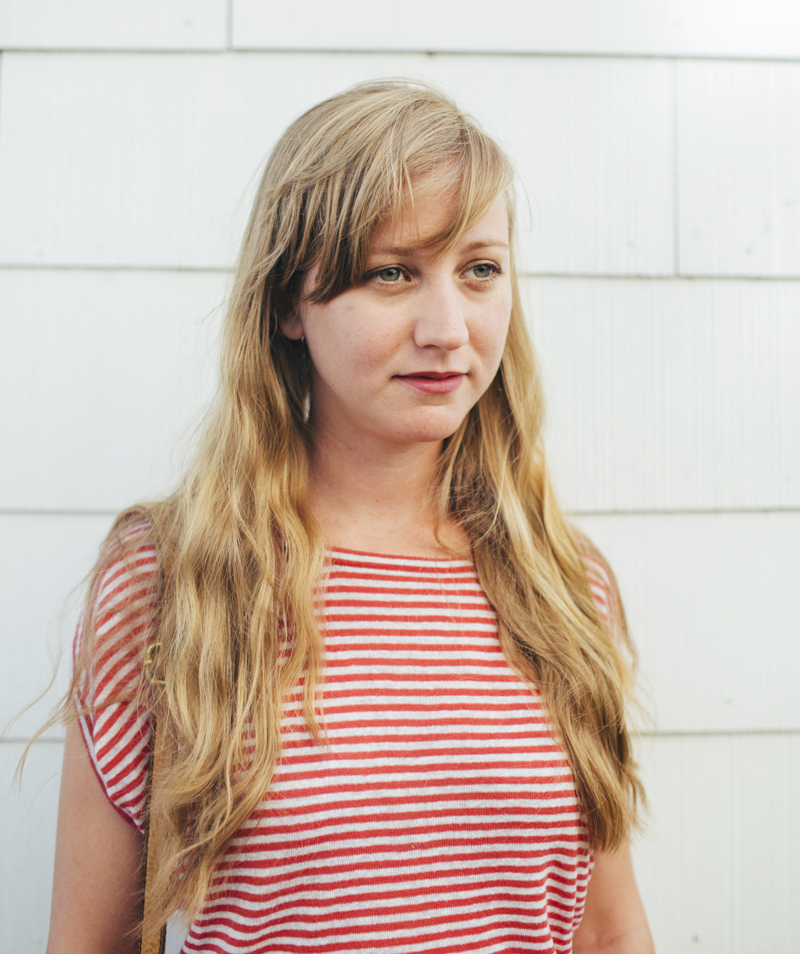
Jessica Woodbury, 28, is a Portland native who works at Maine Medical Center delivering food trays to patients. She lives alone and pays $800 a month to live on Munjoy Hill.
“I hope to stay where I am, because this is where I’m from, but my rent increasing does worry me. I don’t know my neighbors anymore, and I hate to say this, but I do see a lot of big SUVs in the neighborhood, vehicles like that, with New York plates, who aren’t very courteous to pedestrians, so I’d say things have changed since I grew up here.”
Brandon Seavey, 18, is a Portland native and works as a food prep manager at the Blue Rooster restaurant. He lives with two roommates and pays $300 a month in rent.
“People who have lived in Portland their whole life, people who grew up here, are moving because of money. No one from here can afford the $3,000-a-month places that are being made here. My dad moved to Lewiston because it’s too expensive in Portland. I’ve never considered leaving, though, because Portland is my home, Portland is my world.”
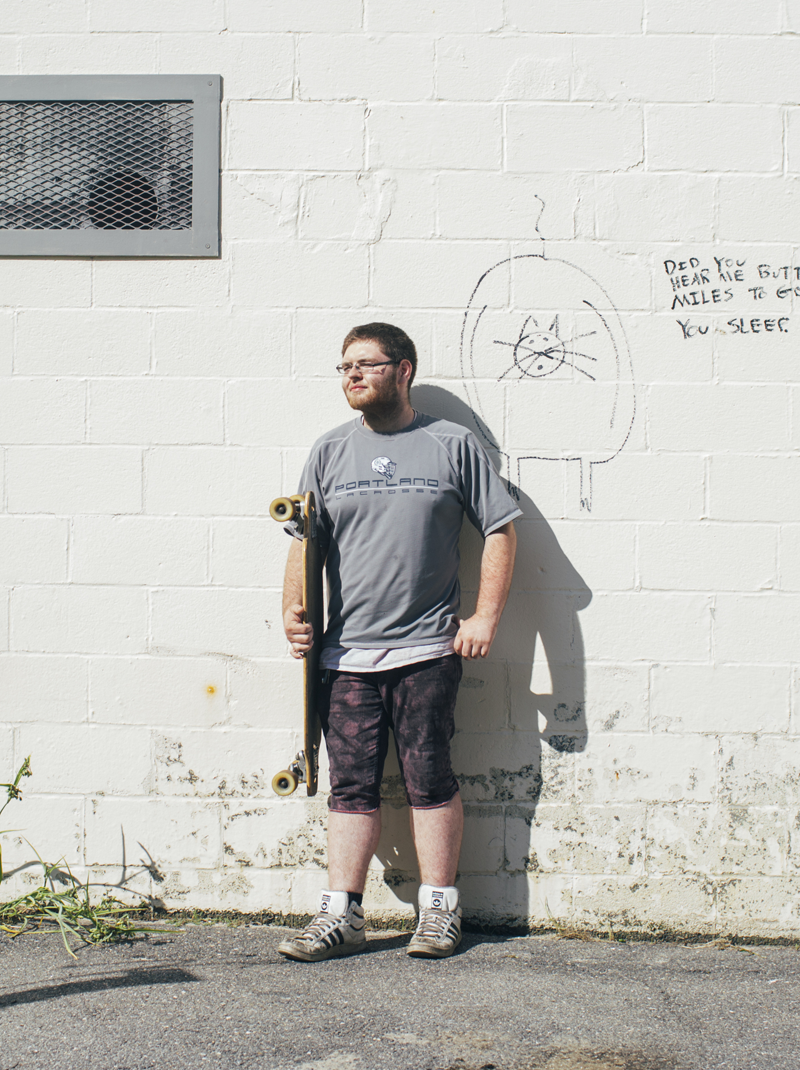

Bruce Calderwood, 56, lives on disability insurance payments. He was born and raised in the home where he lives on Merrill Street. His father purchased the home for $5,000 in the early 1950s. Merrill is considering selling the house because the property taxes are getting too expensive, and the house needs repairs.
“The neighborhoods now are not as close-knit. I used to be able to name everyone in any direction, and now it’s just people moving in and out every six months or so. I started noticing that happening about 10 years ago.” If he sells the house, he won’t stay in Portland because it’s too expensive. He is considering moving to Gorham or some other more-affordable southern Maine town. The house two doors down from him was sold recently and he heard it’s being converted into condos.
Daniel Crocker, 53, used to work at Wal-Mart but stopped working there because of difficulties in public transportation schedules between Portland and Falmouth. Crocker, who is originally from Ohio, has also worked at a carnival and is seeking employment.
“You can’t live here anymore unless you’re making $100,000 a year, and that’s why people are leaving. Especially can’t live here if you’re living by yourself. You’ve got to have two roommates or something like that. They’re trying to make this whole hill condos.”
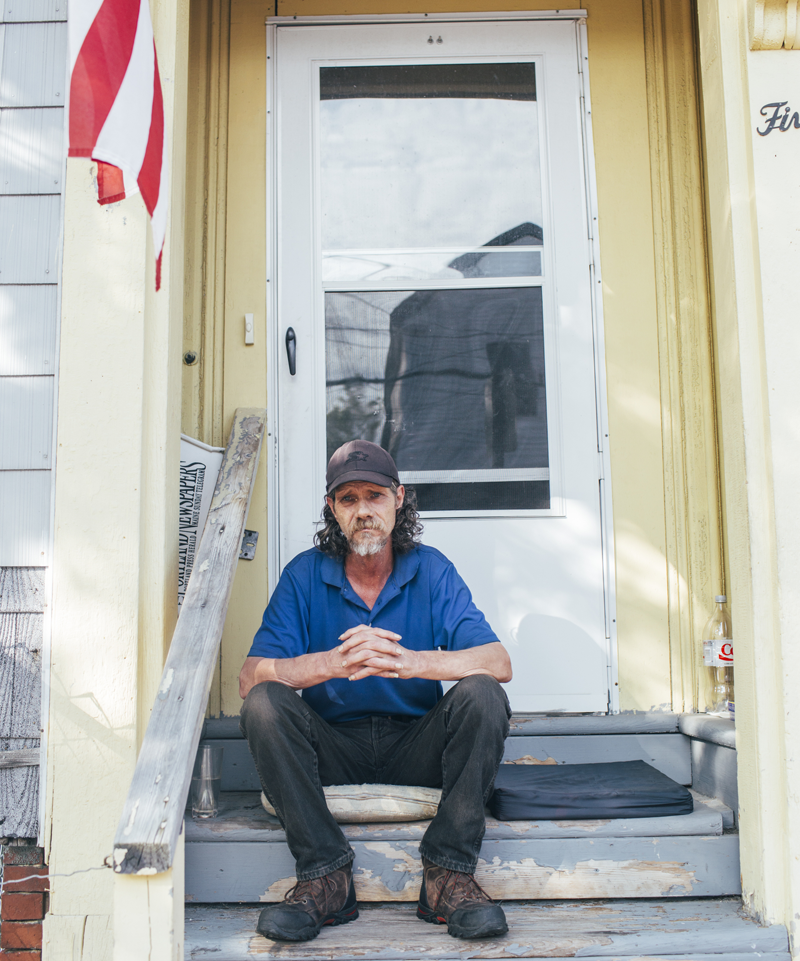
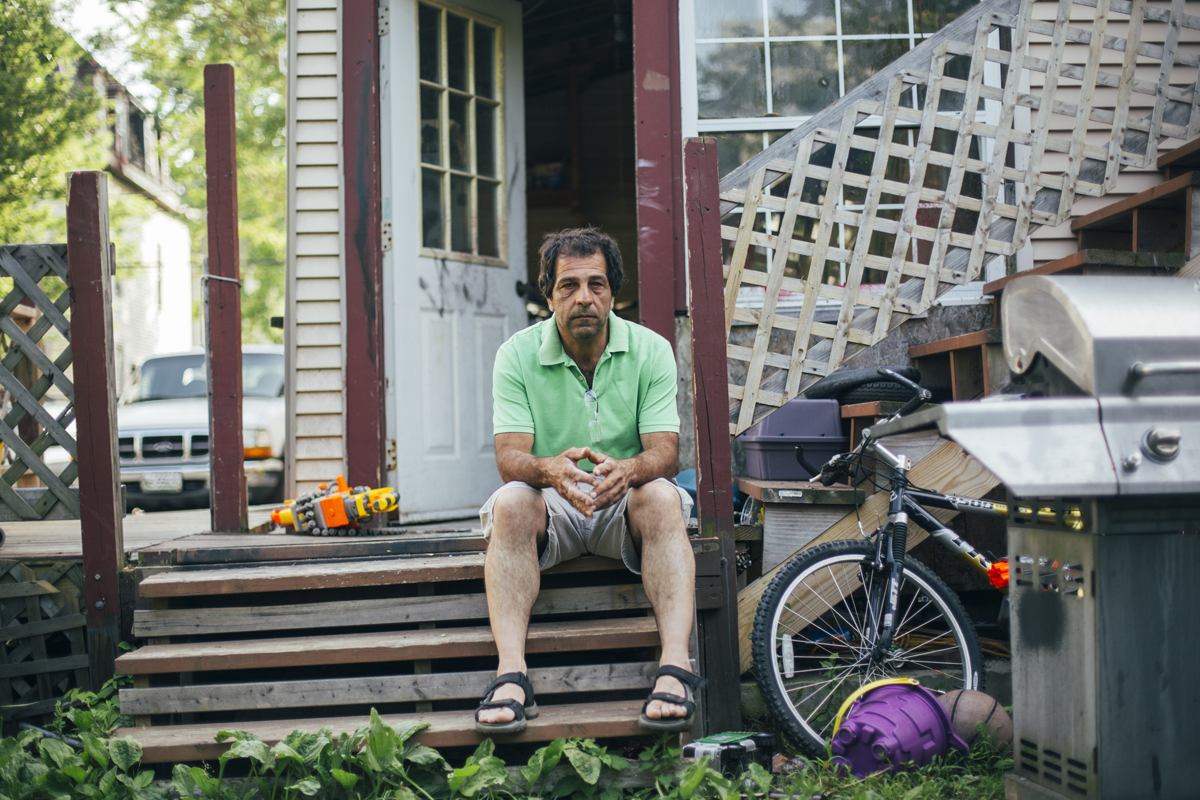
Timothy Trott, 47, is a maintenance worker who has lived in Portland his whole life. His father purchased their home in the early 1960s for $15,000. They put the home up for sale recently, and it was sold overnight to a man from Brooklyn, New York, for just over $300,000.
“The place has been through 10 kids (Trott has 9 siblings) and so it’s a little run-down, and needs a lot of work. “Out-of-staters are sucking this place dry. Everybody used to know everybody, and now it’s all yuppies or granola types. I make decent money, so I wouldn’t knock someone for being well-off, but I’ve seen so much change. I knew this neighborhood, where every family had 15 or 20 kids, and this is coming from a person who grew up in a family with 10 kids.” He said he’d like to stay in Portland and own another house.
Danny Liwanga, 49, was looking for a job when this photo was taken in July. He had worked as a technician at a TV station in the Democratic Republic of the Congo, and then worked as an engineer at a cellphone company. He came from Kinshasa, the capital city, as an asylum seeker 10 months ago. He lived on Cumberland Avenue for eight months, and was living at the Family Center Shelter on Chestnut Street previously. He does not know what his monthly rent is, because he said the federal government pays for it. He likes living in the neighborhood, and said he felt lucky to have someplace to live, but he desperately wanted a job.
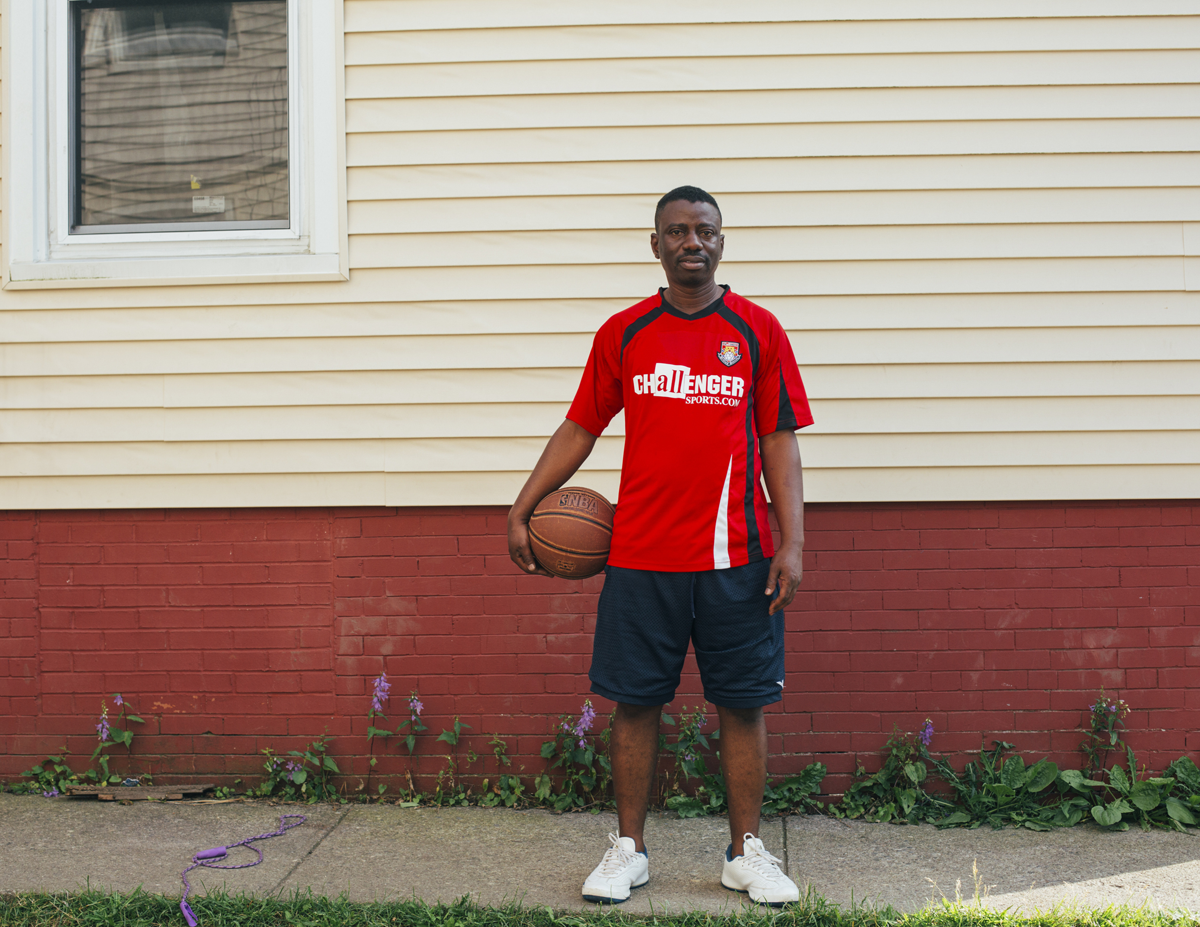
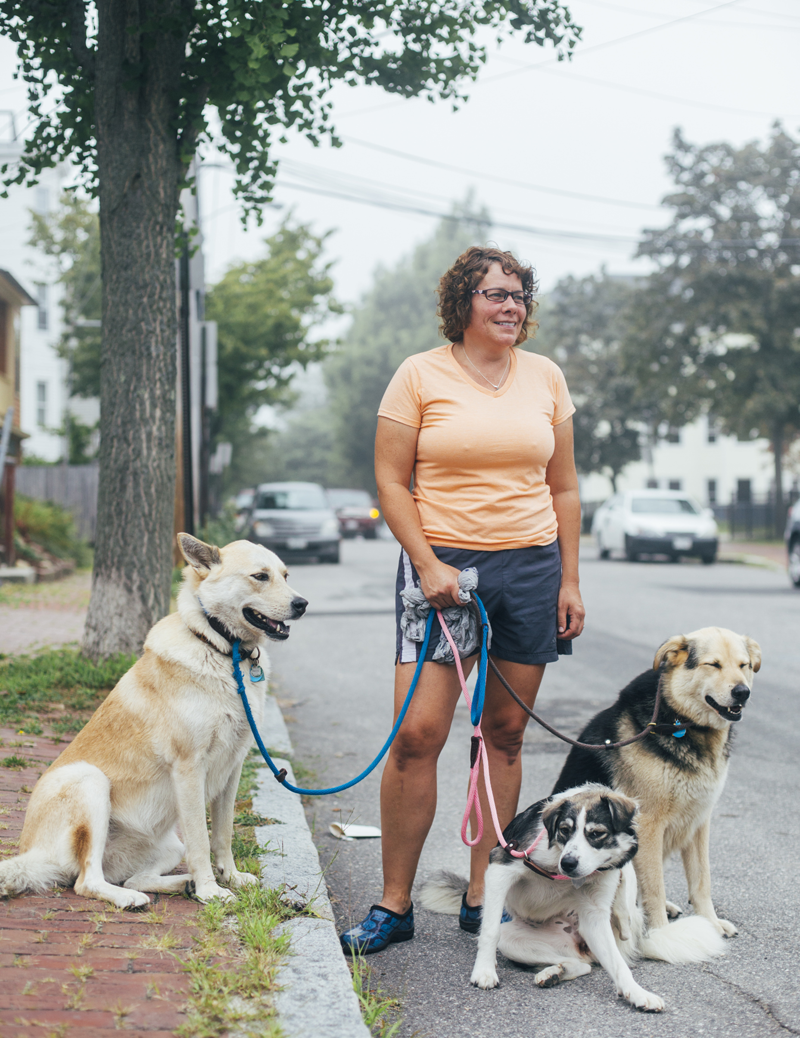
Christine Kiley, 48, a dog trainer, is originally from Massachusetts. She purchased a home 12 years ago for just under $200,000, and intends to stay here for the foreseeable future.
“We love this neighborhood, the old houses, the culture, and how close it is to downtown. And it’s great for my business. Where else am I going to see a dog every 30 seconds?”
Chip Newell, 69, and
“We wanted something that was full of light and energy-efficient, and something that was up to modern-day building standards, and two and a half years ago when we were looking into this, there wasn’t much choice in the realm of how we would like to live. We teasingly said to each other if we found the right spot, we’d fall off the wagon and build again,” Morris said. They weighed benefits of multiple neighborhoods in Portland, including the Old Port district and the West End, but ultimately settled on Munjoy Hill after finding a building lot with good development potential and the possibility for nice views. “We are people who like diversity and an eclectic environment. Our hearts were definitely here,” Morris said.
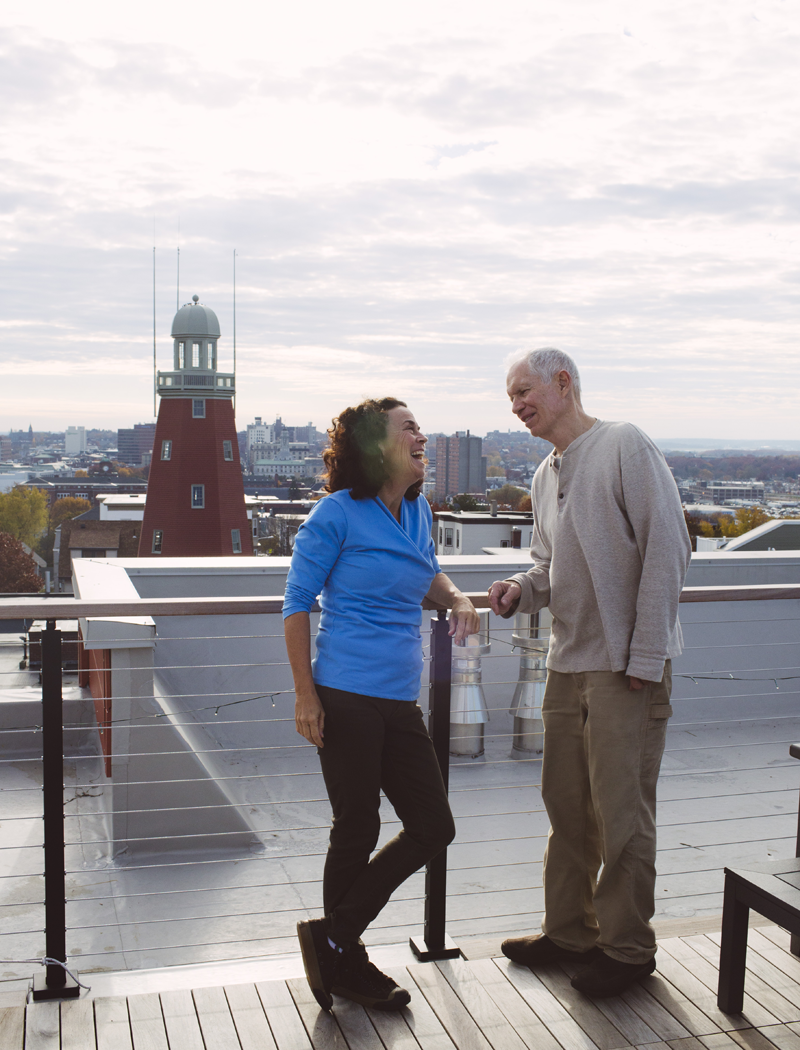
FACES OF EAST BAYSIDE
Staff photos by Whitney Hayward

O. Gotti, 25, has lived in the Bayside neighborhood his whole life. He lives alone on Mayo Street and pays $820 a month in rent, which does not include utilities.
“I’ll live here forever,” Gotti said.
Douglas Mpay, 45, lives on the border of Parkside and West Bayside. He works in outreach and enrollment for the Portland Community Health Center. He has lived in Portland for four years, in a two-bedroom apartment for which he pays $1,000 a month in rent, which includes heat but no electricity.
"My neighborhood is a little noisy, but that's not surprising. There's a mixture of people from different cultures, which adds to it," Mpay said. Mpay said he likes his apartment, but his only concern is rising rent - it was $900 when he first moved in.
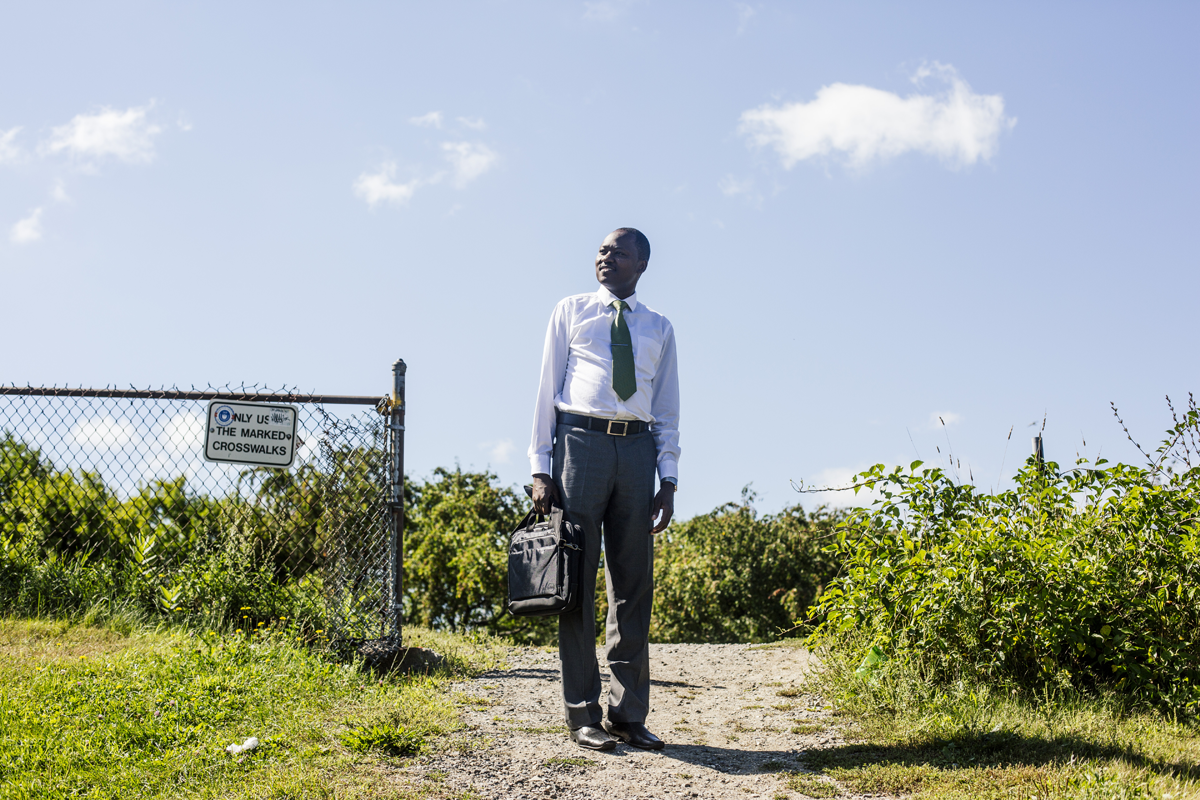
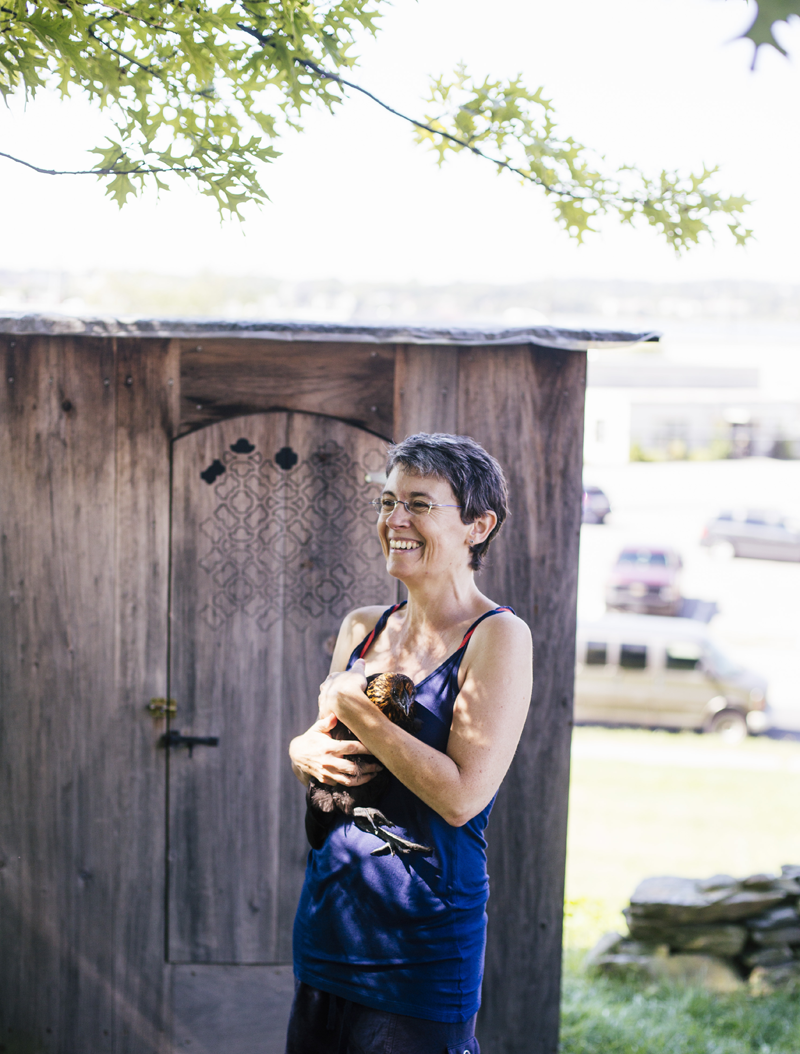
Sandrine Chambert, 45, is from Marseilles, France, and moved here after meeting her husband, who is originally from Kennebunk, in 1999. When the couple moved to Portland, her husband owned an apartment building, and that’s where they lived until about 2011. They decided to buy a house and knew they wanted to live near Munjoy Hill, despite the rising property values there.
"We knew it would be a little difficult, moving near the Hill, and we didn’t know whether we would be buying something to tear it down, or what would make the most sense," Chambert said. They found the right house listed on Craigslist but were vacationing in France at the time and asked the sellers to wait until the couple returned to view the property. They renovated the house, which sits at the edge of the hill in East Bayside, and keep chickens in the backyard.
Tahnee Plummer, 26, is originally from Pennsylvania and moved to Portland with her boyfriend several months ago. She works in construction and gets paid $15 an hour, and her boyfriend also works full time, she said. The couple has enough cash to pay the first and last month of rent for an apartment, she said, but they have not been able to get an apartment and, this summer, lived in a camper parked in the East Bayside neighborhood.
“Our money spends just as well as anyone else’s, but we just need someone to give us a chance,” Plummer said. She also said she suspects landlords are wary of renting to the couple because her boyfriend wears his hair in dreadlocks. She planned to start searching for housing alone so landlords would not make a premature judgment about their reliability in paying rent.
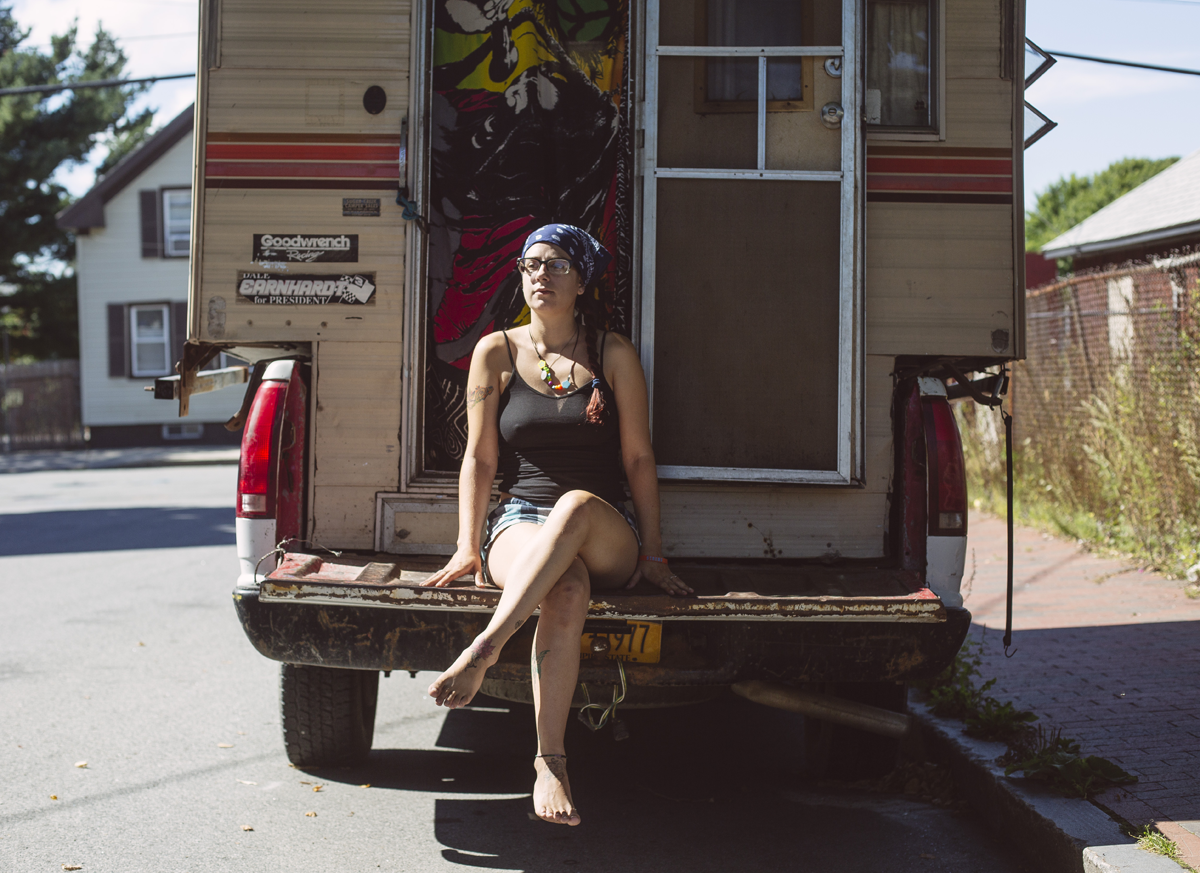
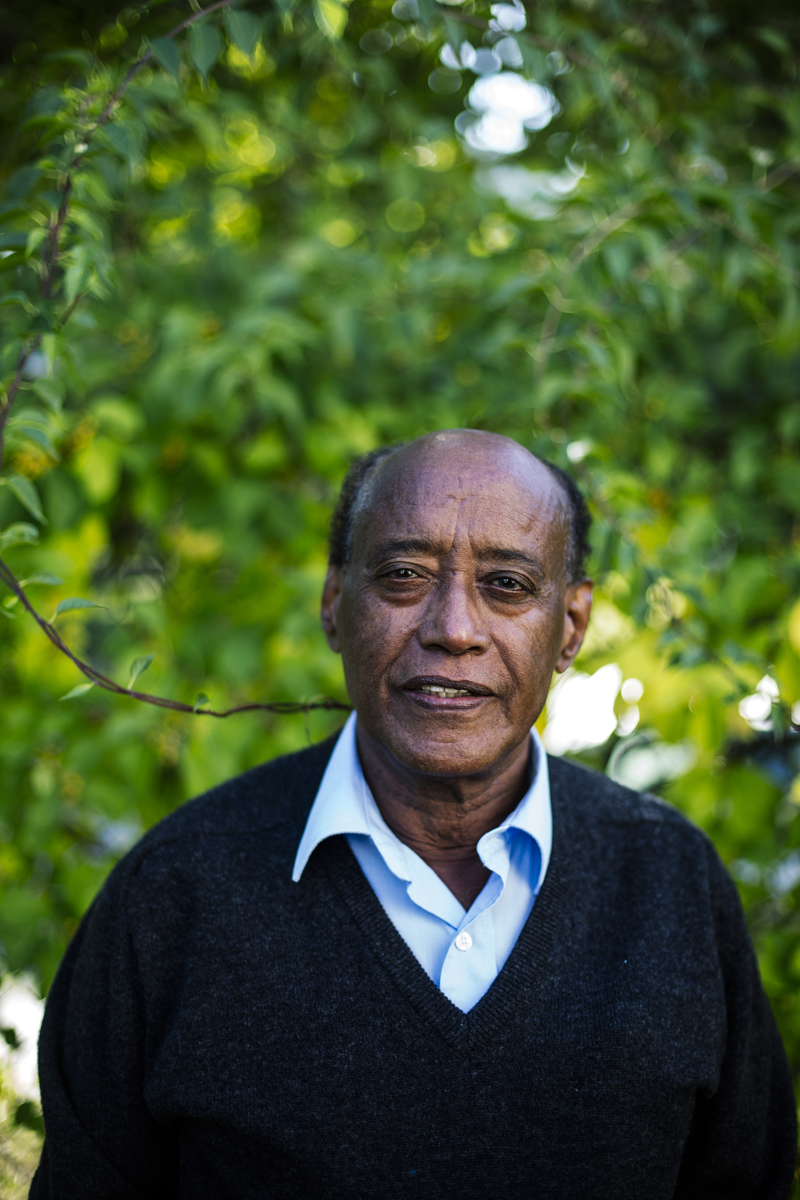
Gerzher A Tessema, 61, who is originally from Ethiopia, has lived in Portland for 25 years. Tessema held a government position in Ethiopia in the late 1970s, during the Red Terror, and was imprisoned and tortured multiple times for speaking and acting against the government. He fled with his wife and child to Sudan, where he went to the U.S. Embassy in Khartoum and was granted asylum. The embassy flew him to New York City, and his family came to live in Maine. Tessema now owns his house and has a mortgage, and has seen the Bayside neighborhood change dramatically since he moved in.
“You’ll now see children 4 years old walking down (the) road, and I’ll try to talk to them and ask where their family is, but that’s not protection. The police do not have time to make."
Molly Booth, 25, is an author originally from Marble Head, Massachusetts. She pays $600 a month in rent, and lives with one roommate. She had a lot of college friends who lived in Portland and her family visited Maine frequently. She wanted to live in the East End, and didn’t intend to live in Bayside, but fell in love with an apartment on Anderson Street. It’s a two-bedroom with 12-foot ceilings, and even came with a piano.
"A lot of people were concerned when I said I was moving to Bayside, and would tell me, 'Oh, it’s kind of a rough area,' "but I wasn’t particularly concerned. What’s nice, there are so many families here, kids biking and riding their scooters. I’m getting to know my neighbors, and all of the kids are obsessed with my dog. My next-door neighbors have lived here for 50 years, and said if I ever needed anything, even in the middle of the night, to just let them know," Booth said.

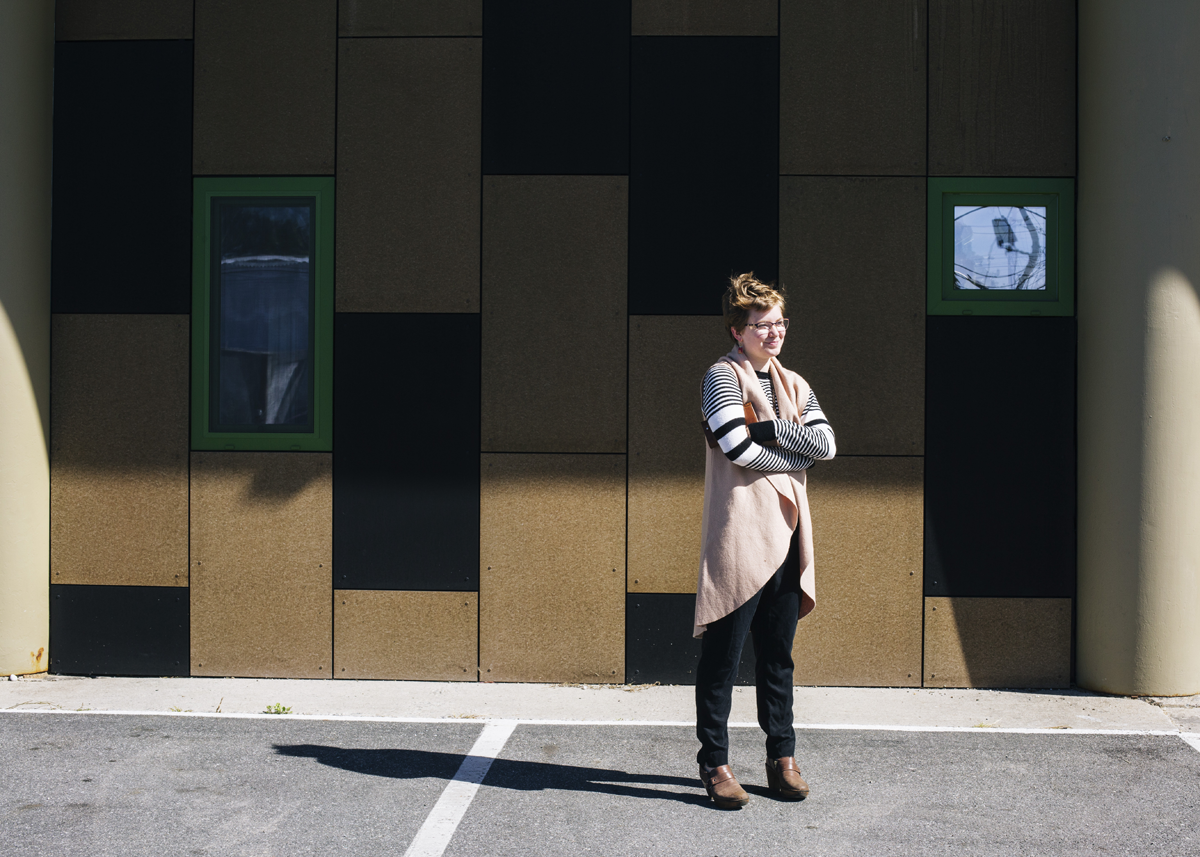
Marty Henzy, 21, is originally from Connecticut, and recently graduated from school in Vermont. She works in retail and also at a restaurant. Her friend, Molly Booth, was looking for a roommate, and Henry had visited college friends in Portland and liked the area, so she decided to settle here following graduation. She pays $600 a month in rent and has one roommate in a two-bedroom apartment.
“I’ve had an overwhelmingly positive experience here. It’s nice, and feels very residential,” Henzy said.
Berrick Bobe, 14, who is originally from Congo, has been living in Portland for three years with three brothers and one sister in a subsidized apartment. Bobe and his family went to Dallas, Texas, when they first came to America, and moved to Portland because of education opportunities. His family first lived in the Munjoy Hill neighborhood, but he said he prefers where they live now in Bayside, because there are always children playing outside.
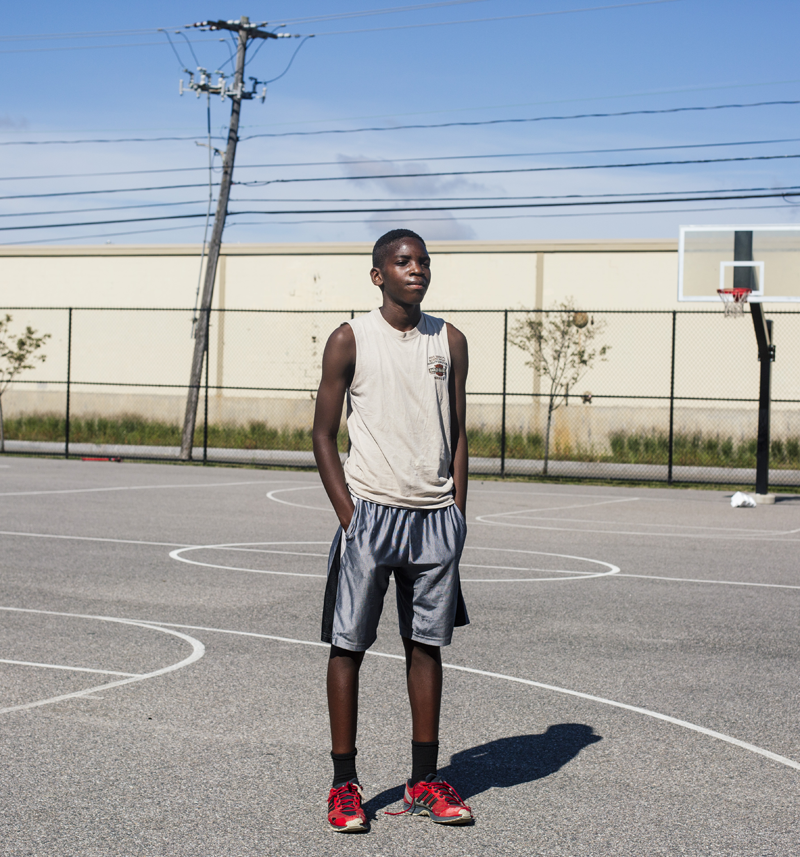
FACES OF DEERING CENTER
Staff photos by Whitney Hayward

Milwaukee native Chelsea Malacara, 25, is a full-time graduate student who lives in a duplex apartment and pays $900 a month in rent. She works for the Presumpscot Land Trust and moved to Portland two years ago after living in off-season housing in Old Orchard Beach. She knew she wanted to live in Deering because of its proximity to Baxter Woods and its quiet neighborhood feel. She lives with her husband, and they’re thinking of starting a family soon. She believes Deering is a great neighborhood for new families.
“In the Midwest, $900 a month will get you a three-bedroom house, so it was an adjustment,” Malacara said.
Deering resident Peter Koutsivitis, 67, stands in Evergreen Cemetery. Koutsivitis is a retired Portland Parks and Recreation Department employee. He is originally from New Hampshire, but has lived and worked in the city for 42 years. He moved in with his 90-year-old mother, in a house she purchased in 1960, to help her out.
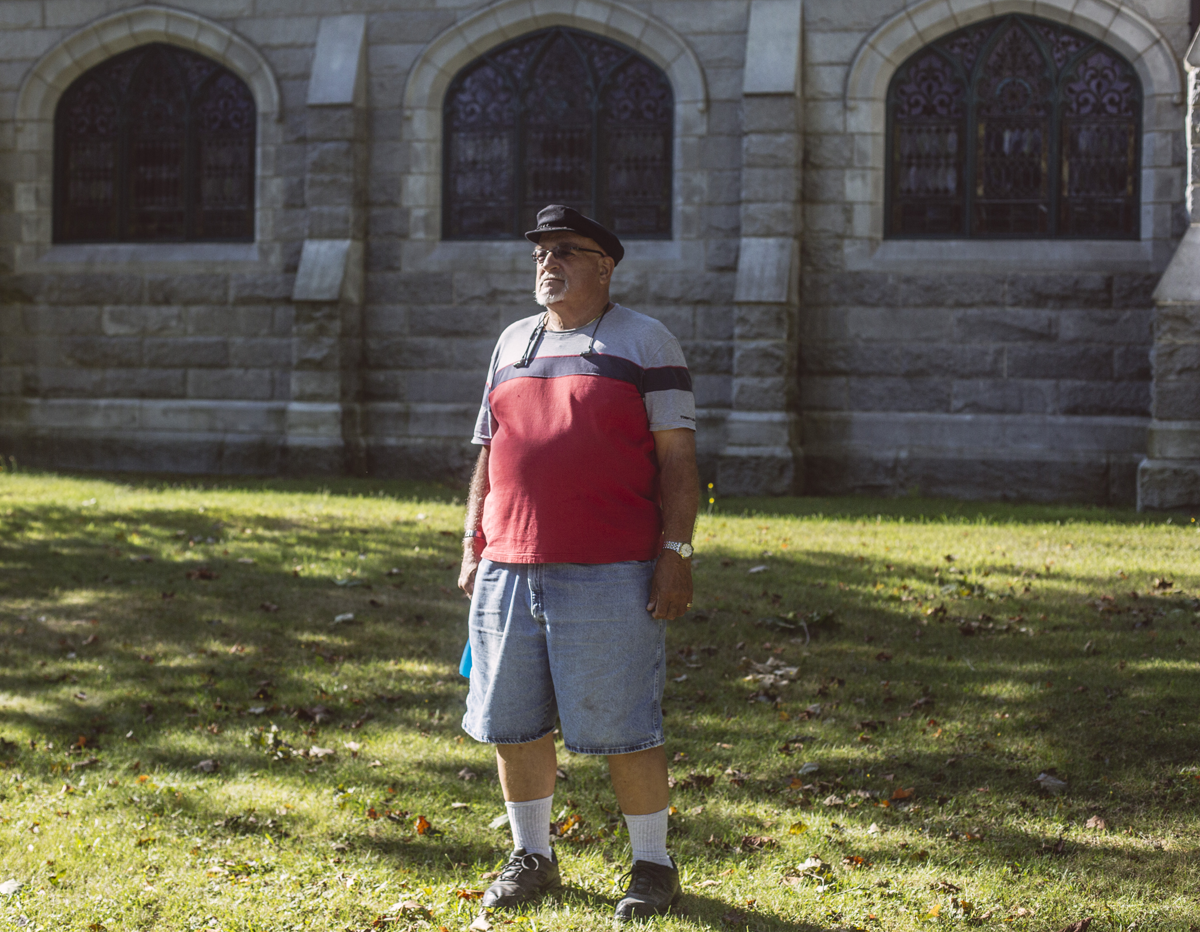
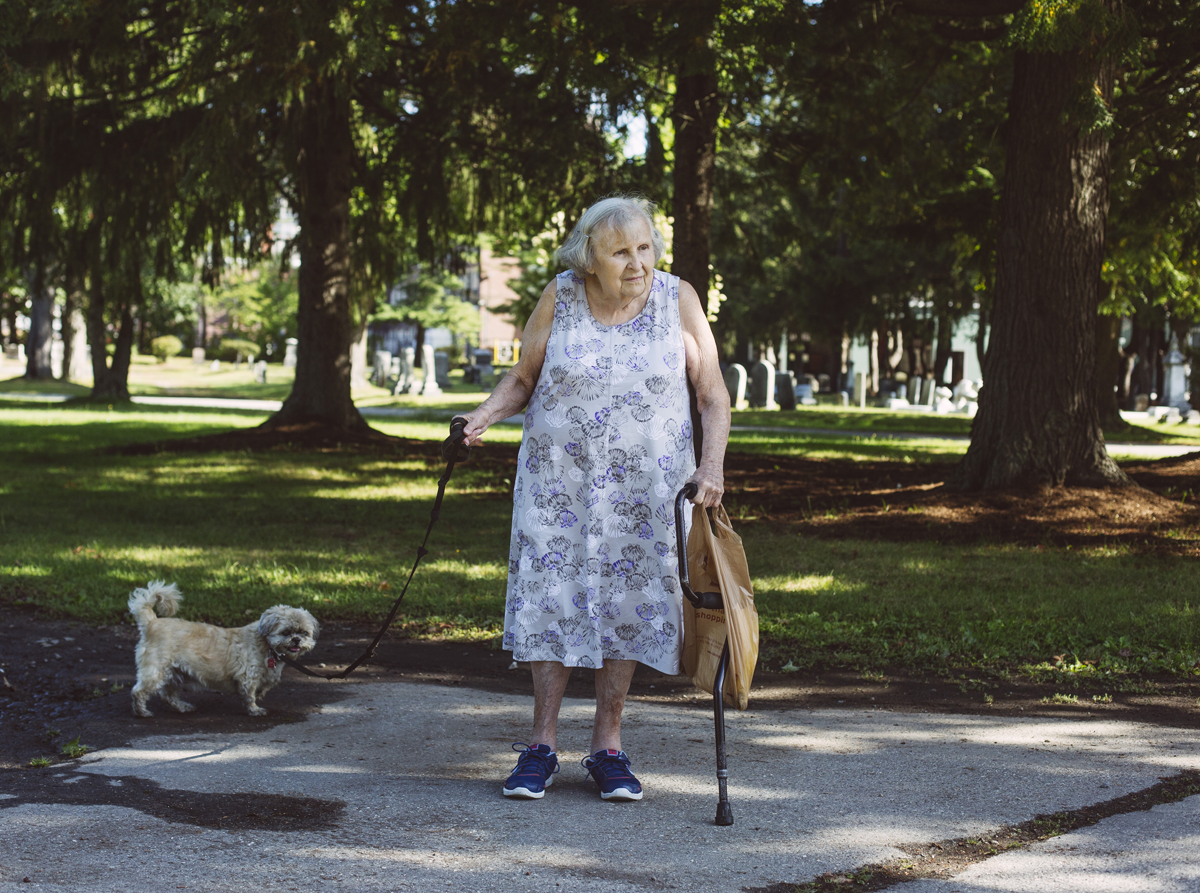
Patricia Powell, 88, has lived in Deering since 1947, and lives in the home where she was raised.
“The neighborhood has radically changed,” Powell said. “A lot of people on my street rent, and I have nothing against renters, but before, everyone knew everyone. The street feels like a revolving door – they’re here for a year, and then they’re gone,” Powell said.
Andy Schmidt, 35, and Emily Lesher, 35, who have two children, Nico, 5 months old, and Nora, 4, moved from Golden, Colorado, and did online research on Portland’s neighborhoods. They decided on Deering for its neighborhood feel and ease of commute for Lesher, who is a professor at Saint Joseph’s College of Maine in Standish. “Now that we’ve lived here two years, if we were to draw a circle on a map around the area we’d want to live in Portland, it would be around our house,” Schmidt said. They remember that the housing market was not nearly as competitive as it is now when they were looking for a house. They easily purchased their home, which had been on the market for six months, and said they had a good Realtor, who understood what they were looking for.
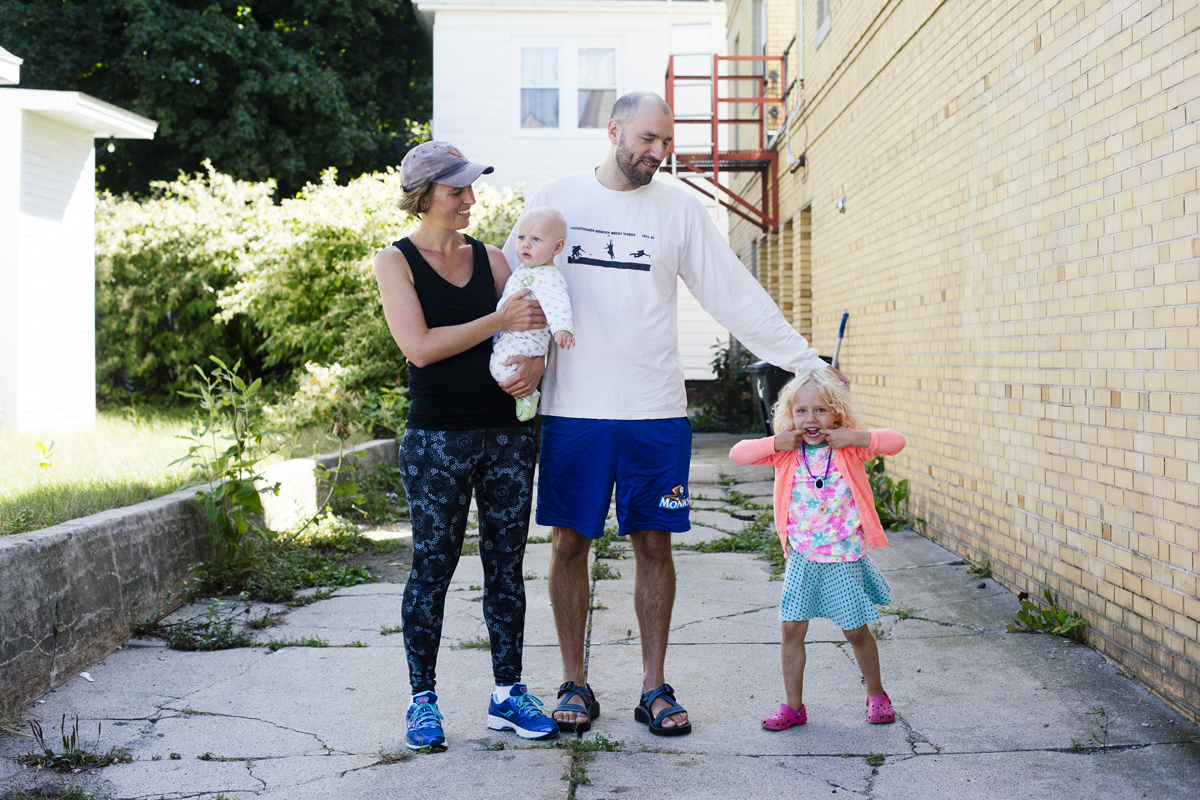
FACES OF THE WEST END
Staff photos by Whitney Hayward
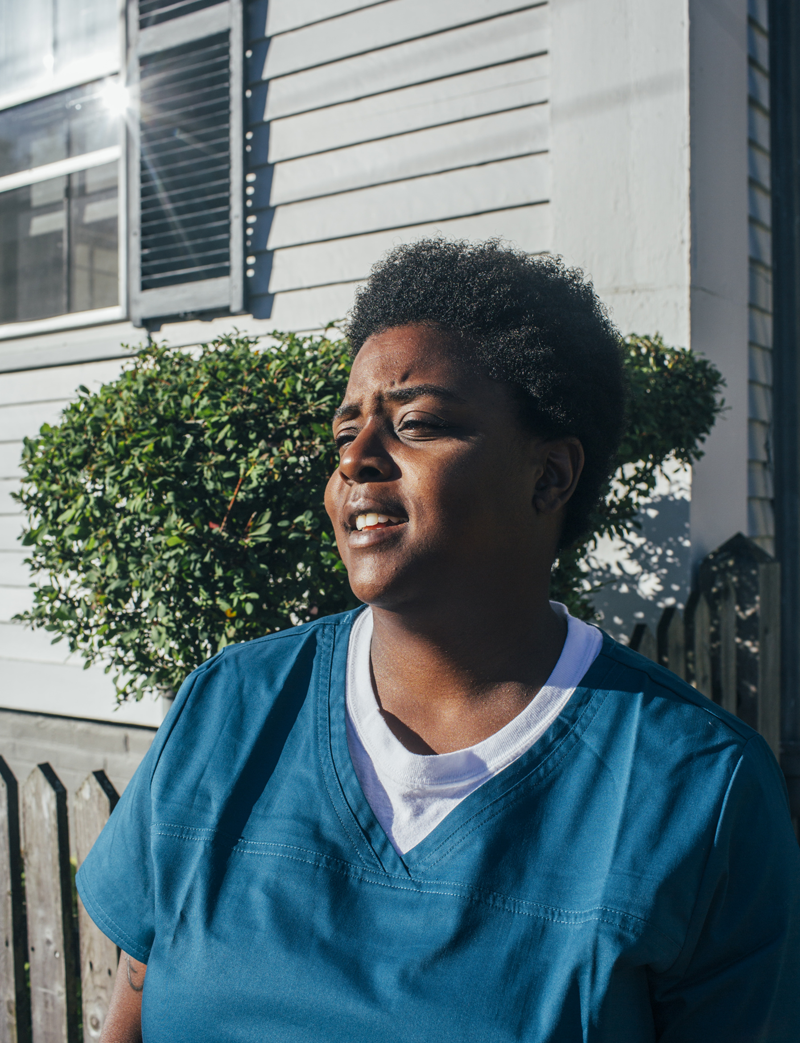
Flo Edwards, 34, is a dentist and considers Portland her hometown. She spent her childhood in the city and moved around as an adult, returning to the city two years ago. Edwards said she decided on the neighborhood because “I always thought the West End was cool.” She pays $1,400 a month in rent, for something that is “technically, a two-bedroom” with only water included in the rent.
“I’m looking to move out of the neighborhood to elsewhere in Portland. We’ve had problems with drunk people passed out in our driveway, street noise, and it’s hard in the winter with a narrow driveway with snow piled on the street,” Edwards said.
Denise Doherty, 41, stands outside her condo on Lewis Street. She is a yoga instructor and dog walker and originally from Staten Island, New York. She moved to Portland’s West End more than 15 years ago, when it “was a bunch of artists with funky cool apartments, a little mecca of gems everywhere, and the community was connected and friendly,” Doherty said. “That connection is still here in the community, but now there are more children, more families, more owners, and the artistic young community has been lost a bit to middle-aged owners with more money.”
Before purchasing her condo Doherty rented an apartment across the street, where she never paid more than $750 a month in rent. The building has since been renovated, and a similar unit to the one she rented now fetches more than $2,000 a month.
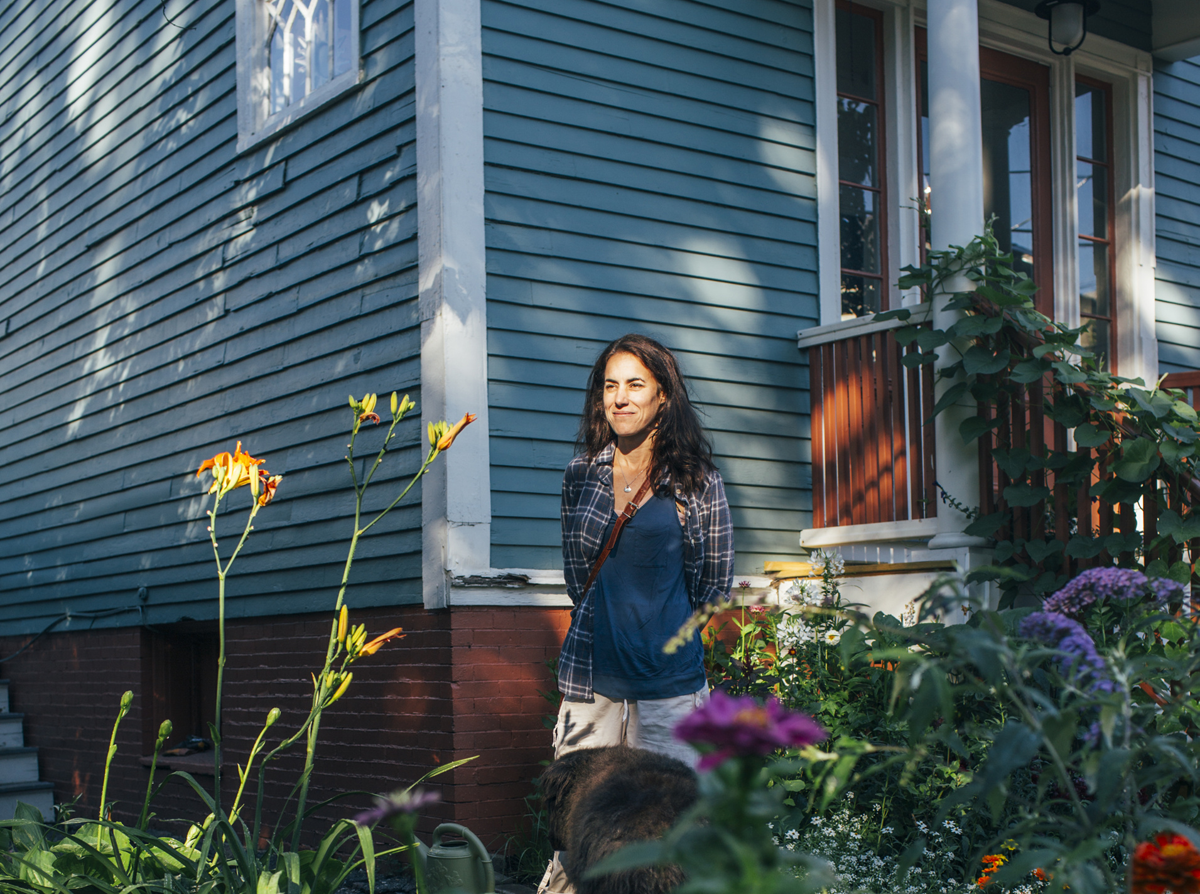
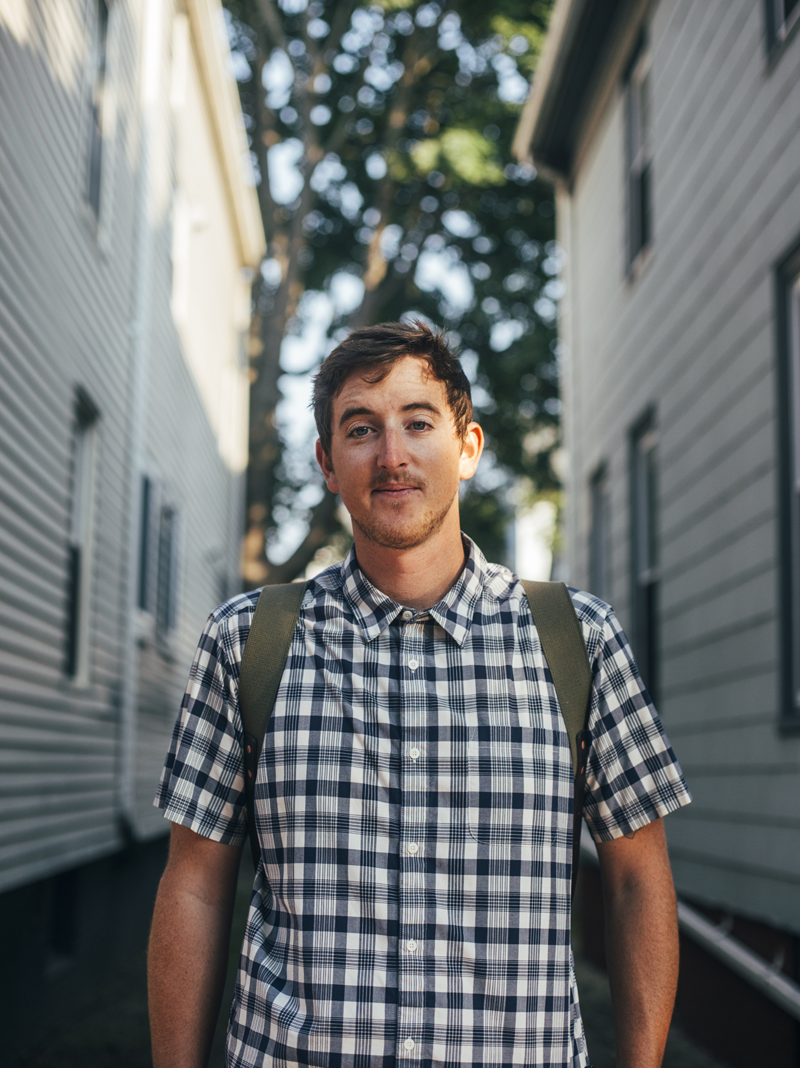
R.J. Condon, 27, has lived in the West End for two years. He is originally from Cape Cod, Massachusetts, and is a graphic designer and Maine College of Art student. He and his girlfriend live in a studio apartment of 400 square feet and pay $1,000 a month in rent. They moved here after a cross-country road trip. They liked Maine but didn’t have any particular driving force that brought them here. They looked for “a solid month” before finding their apartment, and weren’t looking exclusively in the West End. They aren’t necessarily looking to leave the neighborhood, but are considering towns outside Portland, such as Yarmouth, in order to “be closer to the woods” and get out of the city.
Lexie Bergey, 28, is a bartender, server and mother of Lila Bergey, 3. She considers Portland her hometown and lives on Danforth Street in a condo that she and her husband own. Including condo fees, she pays the equivalent of $1,200 a month for housing.
“There’s a lot going on here (in the West End) and a lot of good food.” She said there is less noise from foot traffic compared to the Old Port. Now that Lila is getting older, the family is looking to move out of Portland, because they can’t find a house reasonably priced. “I’m sad to leave, but we need to expand, and that’s the reality,” Bergey said.
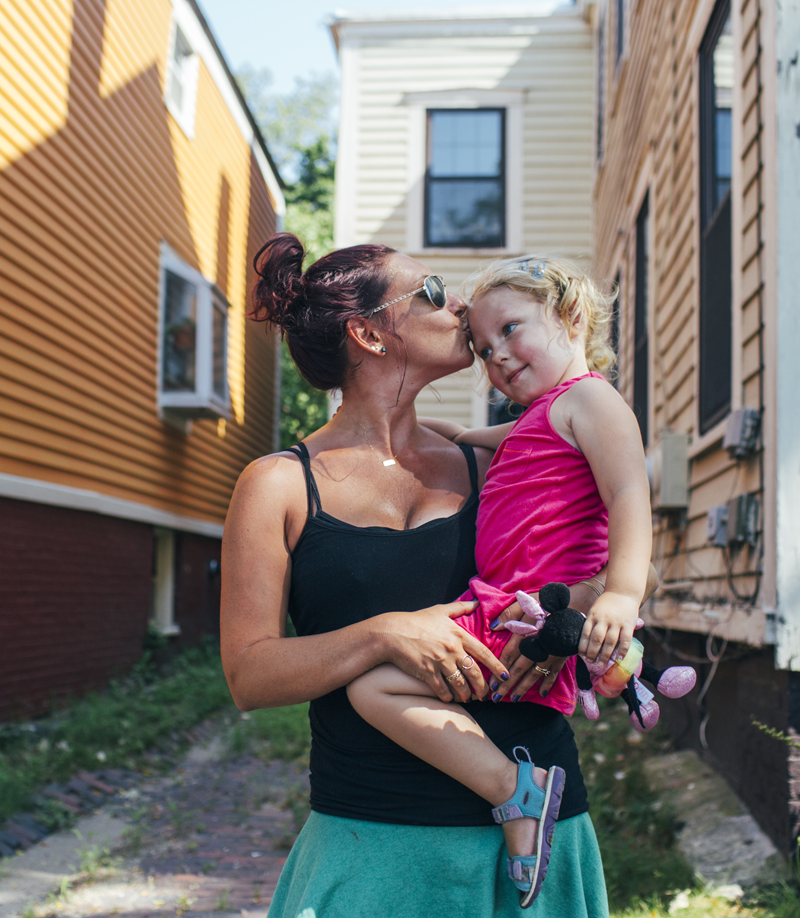

Jake Nilsson, 24, who originally is from Colorado, moved to Portland four years ago, and is employed as a construction worker. He has two roommates and pays $525 a month in rent, utilities not included. He was attracted to Portland for its recovery resources for sobriety, and said he wanted to move to the West End because it seemed more residential, and more family-oriented.
“(Since moving here) the neighborhood is changing in good ways, there’s new development and buildings are getting fixed. The market seems to be exploding,” Nilsson said.
He said he loves the West End, but is concerned about a low-income housing development planned for land that tenants in his building use as a parking lot. He said 70 people park there, and finding parking when the city is under a parking ban was a struggle last winter.
George Anastasio, 25, moved to Portland two years ago to start breeding dogs for truffle hunting. He’s originally from a suburb of Boston. He came to Portland with a budget of $500-$700 monthly, and said it wasn’t difficult to find housing within that budget with a roommate. Anastasio said he didn’t come to Portland knowing he wanted to live in the West End, but now that he’s lived in his apartment for a couple of years, he said it’s his favorite part of the city. He finds that it is safe and very little foot traffic comes through the neighborhood.
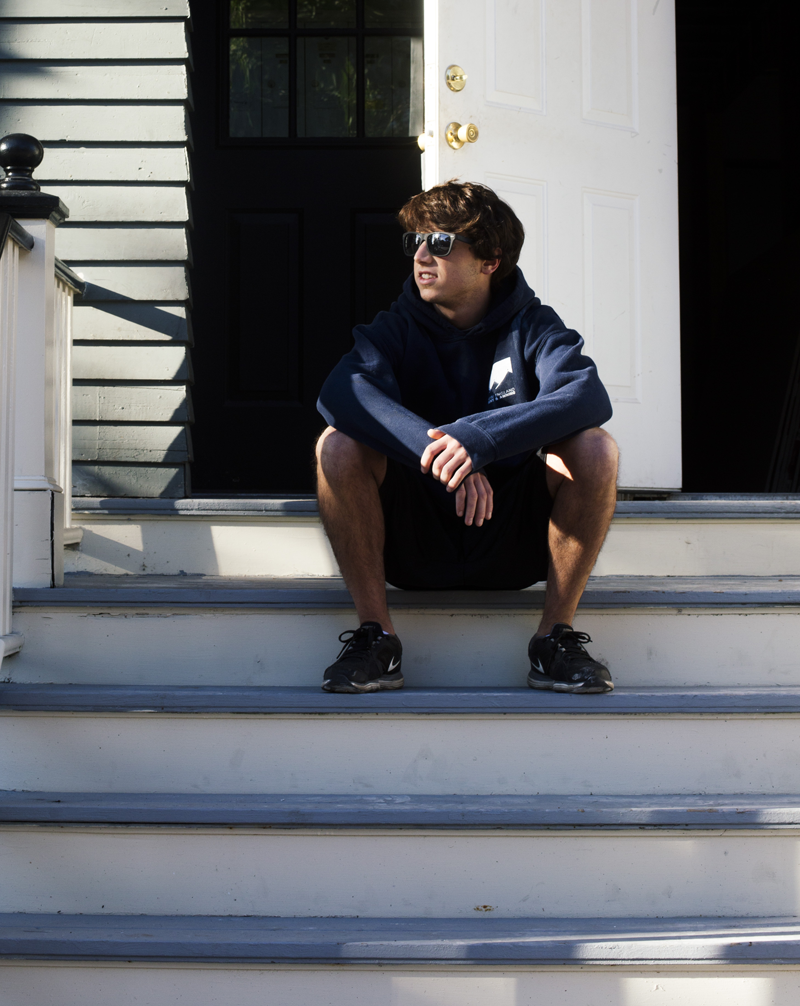
© 2015 MaineToday Media | Originally published Dec. 29, 2015